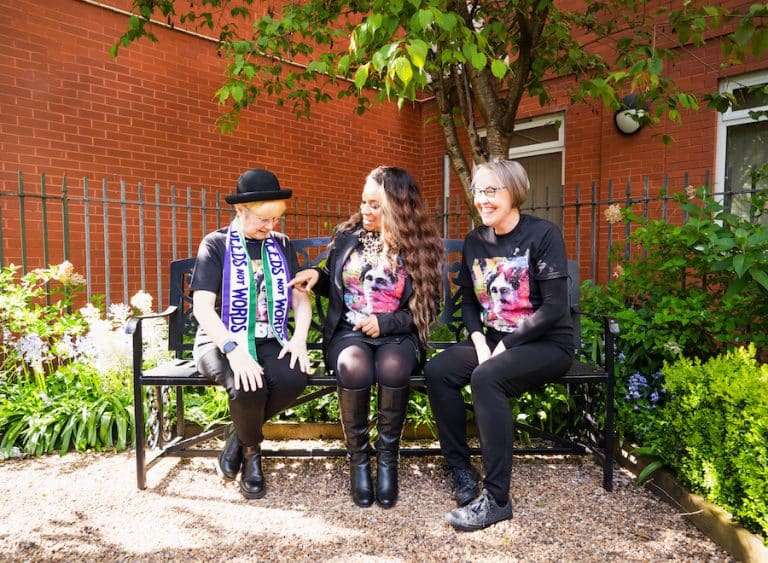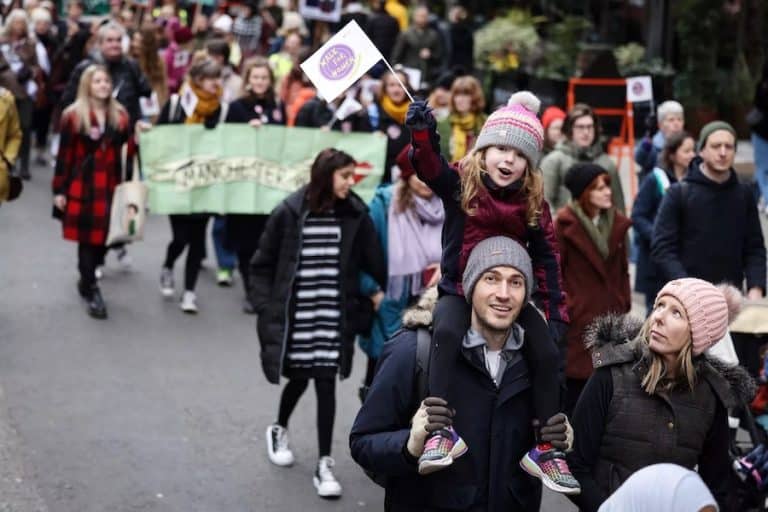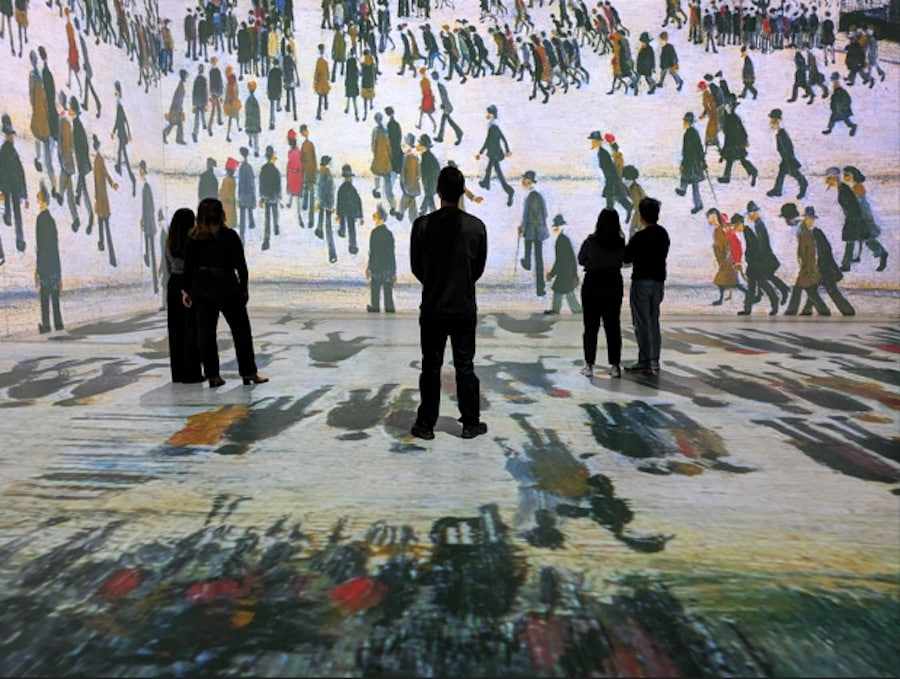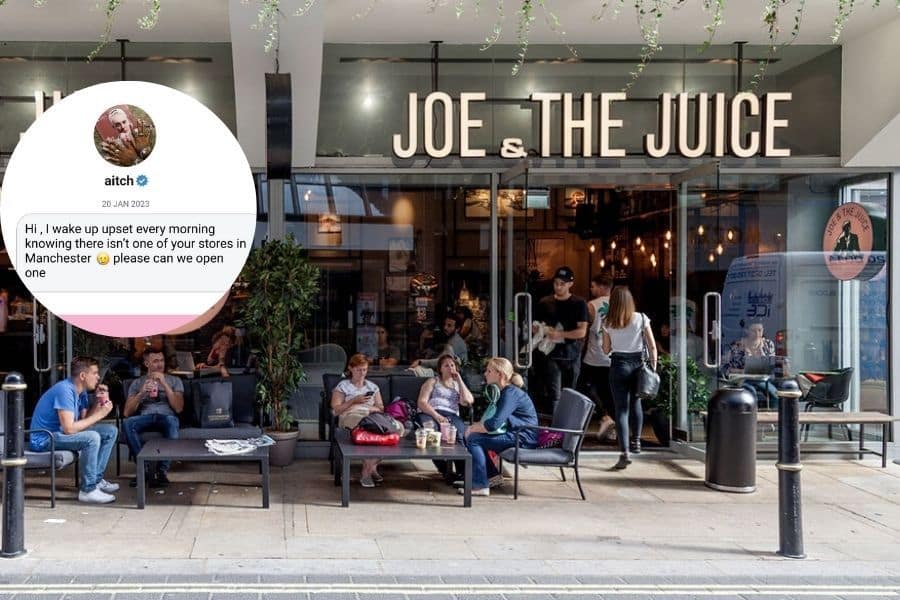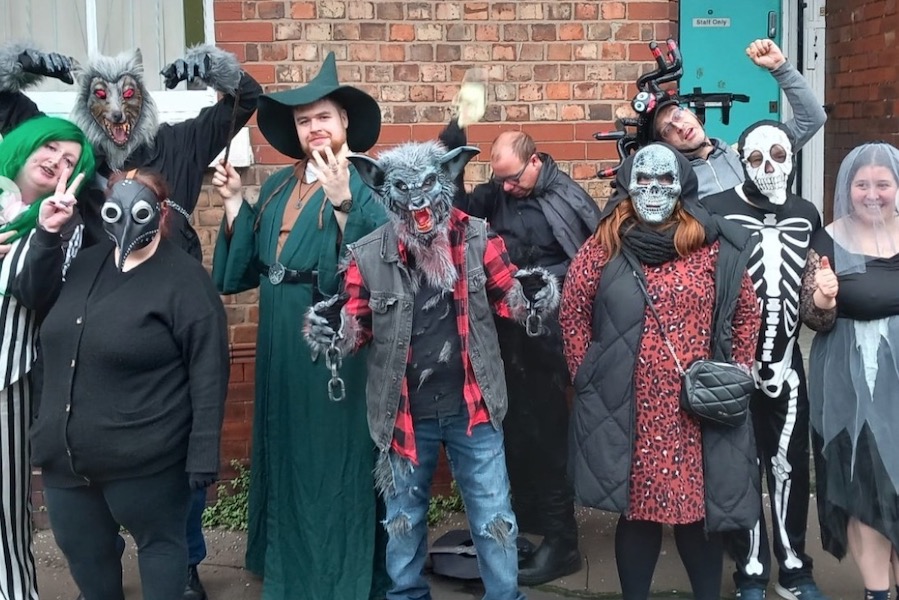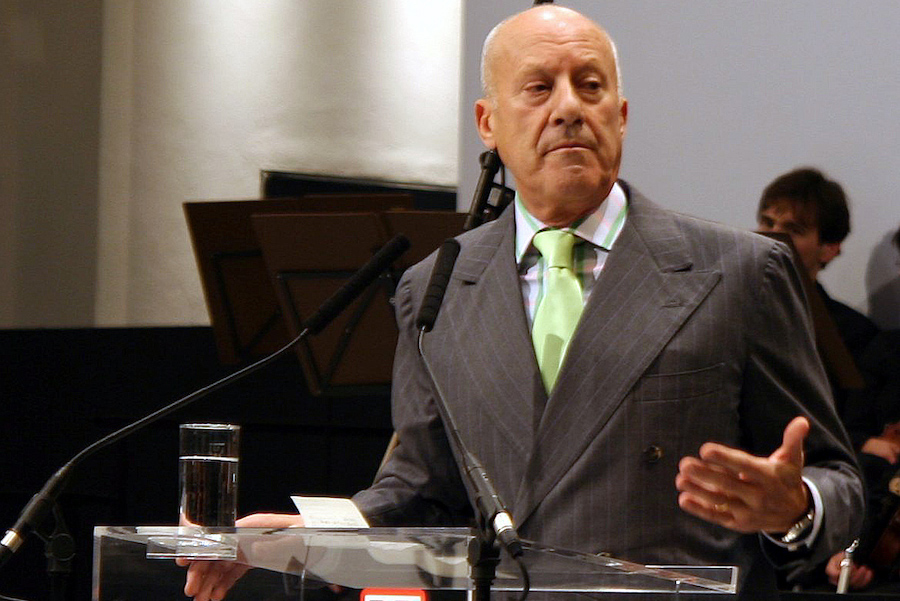Elle for Elle: the Manchester charity helping women in refuges build their self esteem
- Written by Susan Griffin
- Last updated 3 years ago
- Community, Fashion & Beauty, Lifestyle, People
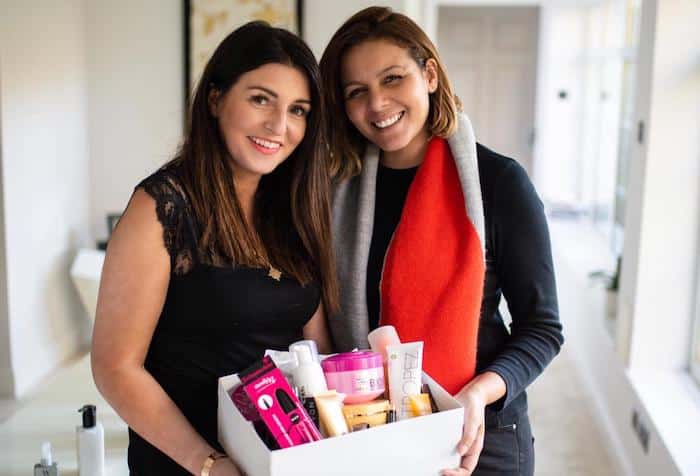
On the surface of it, make-up might seem frivolous and superficial, but no one can deny the power of a pamper session or how putting on a lippy can pep up you up for the day.
But the ability to do either is something many of us take for granted. Which is why two friends set up Elle for Elle, the Manchester-based charity for women in refuges who don’t have the means to buy basic toiletries, let alone treat themselves to a beauty treatment.
Their work was recently praised in Westminster when Rachel O’Hare and Lynette Page-Collin, the founders of Elle for Elle, met Steve Coppard at the Cabinet Office to talk about the issues of debt and financial abuse, believed to be two of the biggest yet most unknown symptoms of domestic abuse.
“Steve Coppard’s very keen to have a deeper understanding of what’s happening for a lot of these women,” says Rachel, who used to counsel victims of domestic abuse.
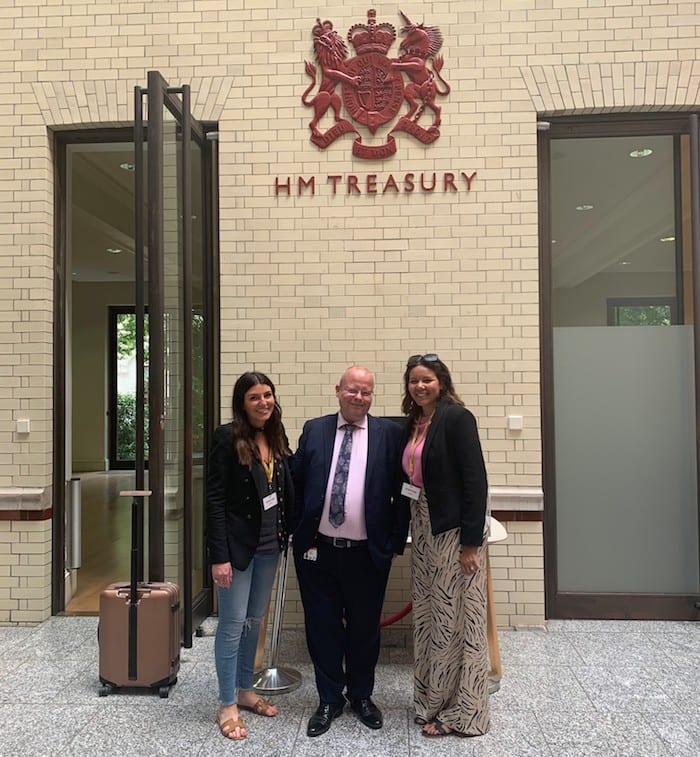
“Very often they go into the refuge and they’re saddled with debt because they’ve taken out loans for the perpetrator, or gambling debts or drug debts, or it’s just basic living as they’re not able to live on fixed income. Then they’re stuck because of the amount of debt they’re in.
“We’re speaking to him about how best to manage the debt for these women and get them out of the refuge and into either social housing or with private landlords.
“We’ve got to compile evidence to go towards a White Paper and have had a meeting with Cheshire Without Abuse who’ve done some work on that as well. We’re hoping to put that forward to Steve and see if we can really get things moving and offer financial support for the women.”
Following the meeting, Steve Coppard praised the charity for providing “moments of dignity for those in desperate situations” and exposing the challenges and reality of life for women in refuges, which is a fantastic achievement, not least because Elle for Elle only launched 18 months ago.
“It was getting towards Christmas and we thought we’ve got so much stuff in our cupboards and buy one get one frees and we just wanted a big clear out. It was all new unopened stuff, so we thought, right where can we send it,” recalls Rachel who’s been friends with Lynette, a trained make-up artist, for years.
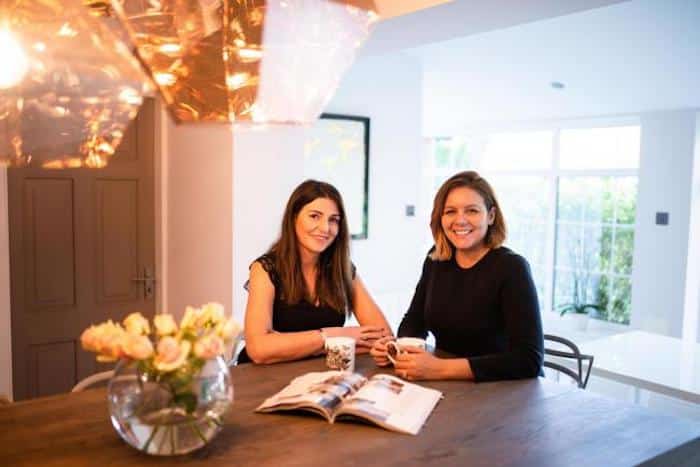
“I contacted a few refuges locally and they said they’d have it with open arms because often what happens at Christmas is the children are prioritised and the women are forgotten so they don’t have much to open on Christmas Day.
“Then we thought, why don’t we do a call-out on social media to our friends and see what we can get, and we were inundated.”
The following year, they launched the Christmas box campaign, which was amazing,” says Rachel. “We thought we’d get a few 100 but ended up with over a 1000.”
To date, they’ve donated 20,000 cosmetic products and have built relationships with refuges across Manchester and the north west.
“We’ll deliver products with our team of volunteers and go in with a team of beauticians and do beauty days for the women. When we first went in, they were a bit wary of us, but once you go back, you build trust.
“Very often, the women have been called horrible things, or if they put lipstick on, it was because (it was assumed they were) going out to meet another man, so it really builds self-esteem.
“We have women in the refuges where English isn’t their first language, but every woman can relate to wanting to look and feel good and better about themselves,” says Rachel who also highlights that “beauty’s a form of counselling”.
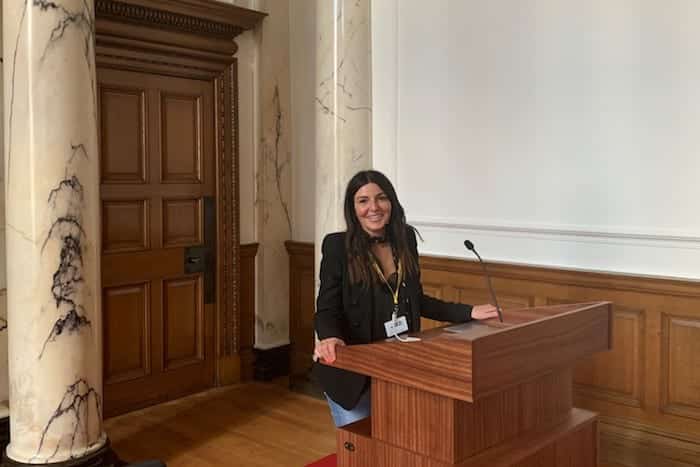
“Hairdressers are very often told unbelievable stuff about what’s going on in that person’s life, and very often these women haven’t been touched in a nice way so we offer massage and reflexology, and we do nails, hair, eyebrows, waxing, all the things they wouldn’t normally be able to afford.”
For victims to feel safe it makes sense that refuges are shrouded in mystery, but that can mean people don’t fully understand what the reality is like for those living in them.
Rachel notes it’s thought of as temporary accommodation but that’s not always the case.
“We know girls that are in there for two to three years, and they’re bringing kids up in a refuge. Some of the ones we visit have very limited resources. Sometimes there aren’t any sheets on the bed and the level of what’s provided can be quite shocking.
“I’m not in any way knocking Women’s Aid and what they do, they do a fantastic job of keeping their tenants safe, but there is such a shortage and that’s due to government cuts,” she comments.
“They’re like forgotten people. Very often it’s a communal living space they’re sleeping with their children in one room with a tiny kitchen. It can feel like being in prison. They’re surviving on £30 a week, so they’re doing what they can to get by.
“Very often it’s a choice for women living in a refuge between Tampax or a loaf of bread or milk for their baby. I mean I was approached last week by one of the refuges to see whether we could do anything about food because there’s only so much they can get from food banks. It’s got to a crisis point.”
Elle for Elle is keen to focus on more permanent solutions for the women. They’re currently putting together a programme which sees girls through beauty training as part of the Be.You.ty campaign “so they can start thinking about setting up their own business and earn money to get them out of the situation they’re in,” says Rachel.
“We also want to find homes for life for the women, so our end goal is to provide our own housing and run it the way we want in order for these women and their children to feel settled.”
But they’re going to need your support to achieve this.
How to help
Donate products:
“We have collection points or if people want to do a collection in the workplace then we can go and collect it. We’ve also got an address where you can post products to our lock up where we sort it and send it out to refuges in the north west.”
Attend fund-raisers:
“We don’t ask for money directly from the public, but we do host fund-raising events throughout the year, like lunches with guest speakers and we’ve got a ball coming up on September 13 at Emirates Old Trafford where people can buy tables.”
Become a volunteer:
“Any beauticians or hairdressers who are willing to donate their time would be great. We tend to visit on a Monday between 10am and 2pm.They have to have their own insurance and kit and be willing to sign a non-disclosure agreement.”
- This article was last updated 3 years ago.
- It was first published on 30 July 2019 and is subject to be updated from time to time. Please refresh or return to see the latest version.
Did we miss something? Let us know: [email protected]
Want to be the first to receive all the latest news stories, what’s on and events from the heart of Manchester? Sign up here.
Manchester is a successful city, but many people suffer. I Love Manchester helps raise awareness and funds to help improve the lives and prospects of people across Greater Manchester – and we can’t do it without your help. So please support us with what you can so we can continue to spread the love. Thank you in advance!
An email you’ll love. Subscribe to our newsletter to get the latest news stories delivered direct to your inbox.
Got a story worth sharing?
What’s the story? We are all ears when it comes to positive news and inspiring stories. You can send story ideas to [email protected]
While we can’t guarantee to publish everything, we will always consider any enquiry or idea that promotes:
- Independent new openings
- Human interest
- Not-for-profit organisations
- Community Interest Companies (CiCs) and projects
- Charities and charitable initiatives
- Affordability and offers saving people over 20%
For anything else, don’t hesitate to get in touch with us about advertorials (from £350+VAT) and advertising opportunities: [email protected]

The world-renowned Mancunian architect behind Old Trafford’s future
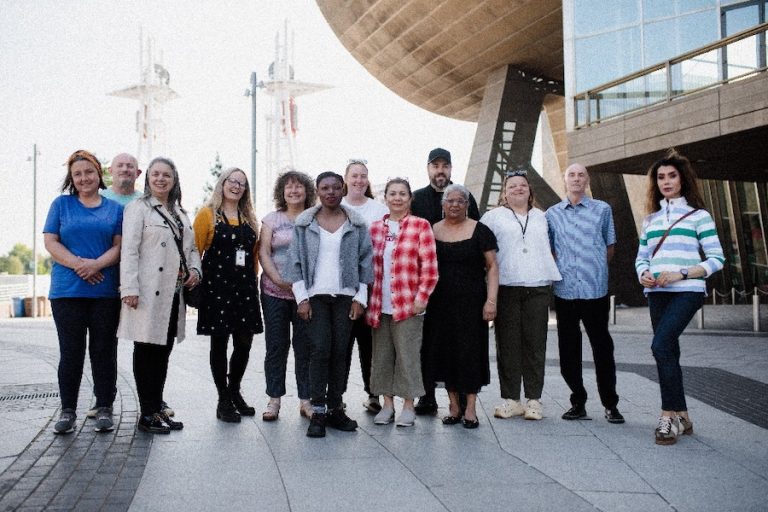
LOWRY wins £200k for community arts projects to celebrate 25th Birthday

Manchester United reveal plans for new 100,000-seater stadium – set to be UK’s biggest

Review: RNCM Session Orchestra with Tim Burgess and Helen O’Hara is ‘a joyful evening of classics’
